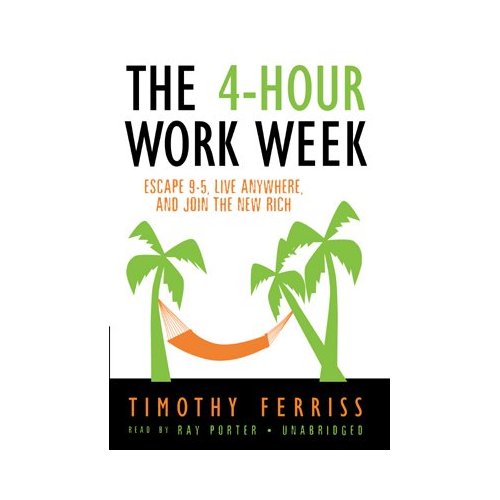 A Community Contribution by Erik Hanberg
A Community Contribution by Erik Hanberg
January’s Wired magazine carried an article by freelancer Chris Hardwick testing out different systems for helping him structure his work and life better.
He sums up:
Now, I know that David Allen is the head vampire of productivity, but if you only have the fortitude to read a single book, I’m gonna throw my lithe frame behind The 4-Hour Workweek. Ferriss lays out a series of nimble yet perfectly legal cons to help you break out of the corporate Bastille — and work from the actual Bastille, if you want. That sly creativity best fits the rogue nature of the freelancer.
David Allen is head vampire? I’ll have to check for fang marks from my book to see if he got me.
As it happens, I am also a freelancer and I have read Timothy Ferriss’s The 4-Hour Workweek. So I feel like I can respond to Hardwick appropriately. He is right about some things–like the idea that the books can supplement each other–but I think his recommendation is way off target.
For those who haven’t read it, The 4-Hour Workweek is essentially based upon two big ideas:
Idea One covers strategies for separating your work from a physical location–the office–so that you can work from home, work from Europe, or wherever it is you want to be.
Idea Two argues that for very little capital, a single person can get an Internet business going that will provide them enough money to live on with a barest minimum of work (hence the title of the book).
I believe his ideas are sound. In fact, I’m testing out an Internet business right now with Google ads to see if I can start a side business for some extra income.
But what Hardwick misses about the GTD system is that it doesn’t matter whether you’re a corporate CEO working 80 hours a week or whether you’re living off the wealth of your Internet business and only work 80 hours every year. You still have to get things done. You still have to pay taxes and bills, enrich your relationships with family and friends, plan your vacation, and maybe–as in the case of Ferriss–learn to tango (Ferriss holds a world record in tango).
For me, GTD has helped me get out from under the feeling of always being behind, helped me stop thinking about work when I shouldn’t, and introduced a system that means I can remember to buy batteries at the store when I’m actually at the store.
Only with that in place could I really seriously consider the suggestions of Ferriss. Now, one of my projects is creating the website for my Internet business. If things are successful, I’ll add new projects like setting up marketing and shipping.
But I just can’t see tackling those things successfully without having Getting Things Done under my belt.

One of the greatest benefits of the “flattening of the world” (to quote Thomas Friedman) is the ability to leverage world-wide talent to work towards a common goal. There’s just no reason that “common goal” can’t be yours.
In other words – having a assistants has completely knocked my productivity into the stratosphere. In an attempt to collect multiple assistants (as per the 4HWW), I found it was easy to share them with others. So I made MicroTasking to allow anyone to leverage the power of virtual assistants.